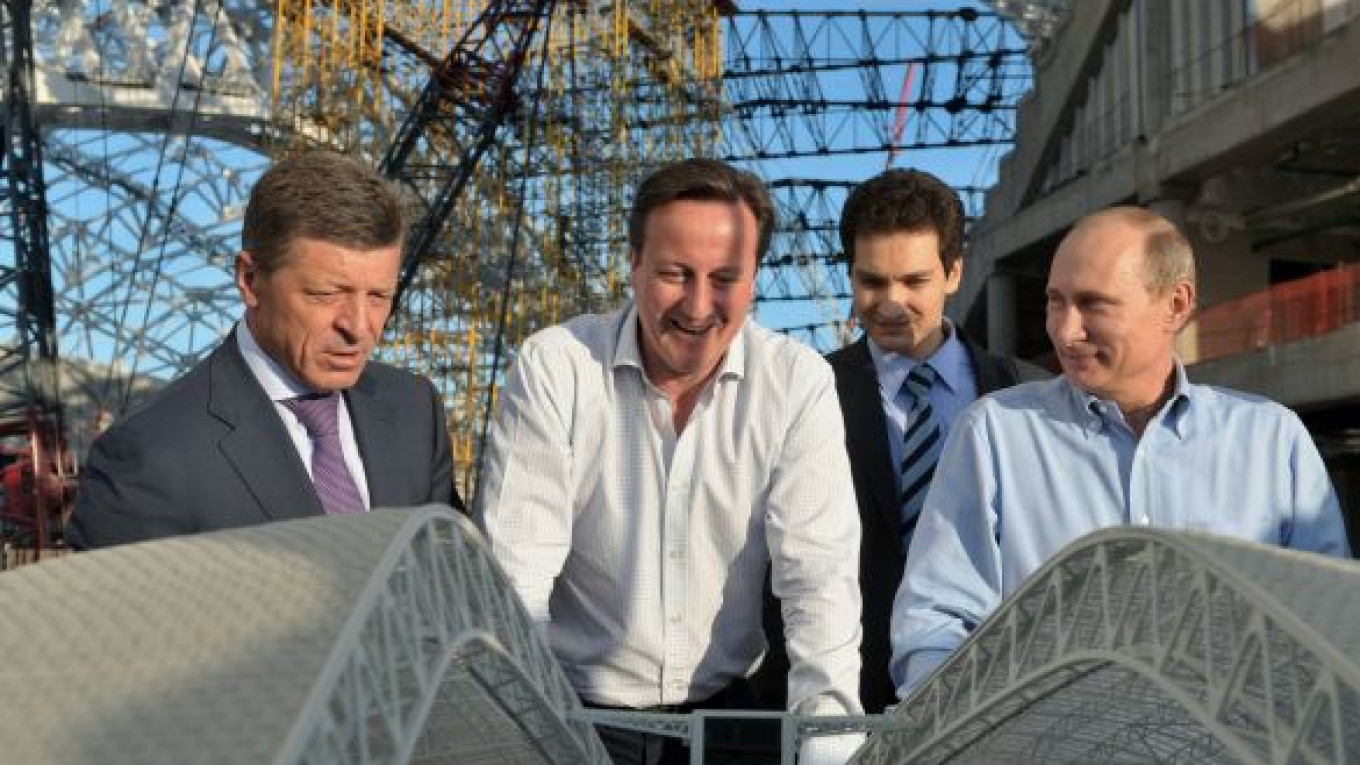SOCHI — Britain's security services will renew cooperation with their Russian counterparts for the first time since London suspended such ties after the 2006 killing of Russian dissident Alexander Litvinenko, Prime Minister David Cameron said Friday.
In a move that suggests relations between the two countries are slowly improving, Cameron said Britain was ready to temporarily restore such ties to help Russia ensure that next year's Sochi Winter Olympics pass off safely.
"We both want the Sochi Games to be safe and secure," Cameron told reporters after meeting President Vladimir Putin in the Black Sea resort in southern Russia where the games will be held.
"So today I have agreed with President Putin that there should be limited cooperation between our security services for the Sochi Olympics."
Located around 1,300 kilometers south of Moscow, Sochi is close to a clutch of volatile, predominantly Muslim republics including Chechnya and Dagestan that are riven by Islamist insurgencies that pose a threat to the Games.
London is home to a small Chechen diaspora, including at least one former rebel fighter whom Moscow would like to extradite.
Britain suspended all security cooperation after Litvinenko, a Putin critic and former officer in Russia's Federal Security Service, died in central London after drinking a cup of tea laced with polonium-210, a radioactive element.
The killing left a radioactive trail in the British capital and sent relations between the two countries to their lowest level since the end of the Cold War.
In a deathbed statement, Litvinenko accused Putin of ordering his murder, an allegation Russia has repeatedly dismissed.
Britain has since unsuccessfully pressed Russia to extradite the man it believes was behind the poisoning, Andrei Lugovoi, a former KGB bodyguard. But Moscow has refused to hand him over and Lugovoi has professed his innocence.
Putin spokesman Dmitry Peskov welcomed the British move.
"Security service cooperation was suspended," Peskov told reporters after the announcement.
"It was frozen on the initiative of the British side, but nevertheless we are satisfied with their readiness to cooperate in the interests of ensuring the safe and peaceful organization of the Olympic Games in Sochi."
A Message from The Moscow Times:
Dear readers,
We are facing unprecedented challenges. Russia's Prosecutor General's Office has designated The Moscow Times as an "undesirable" organization, criminalizing our work and putting our staff at risk of prosecution. This follows our earlier unjust labeling as a "foreign agent."
These actions are direct attempts to silence independent journalism in Russia. The authorities claim our work "discredits the decisions of the Russian leadership." We see things differently: we strive to provide accurate, unbiased reporting on Russia.
We, the journalists of The Moscow Times, refuse to be silenced. But to continue our work, we need your help.
Your support, no matter how small, makes a world of difference. If you can, please support us monthly starting from just $2. It's quick to set up, and every contribution makes a significant impact.
By supporting The Moscow Times, you're defending open, independent journalism in the face of repression. Thank you for standing with us.
Remind me later.


